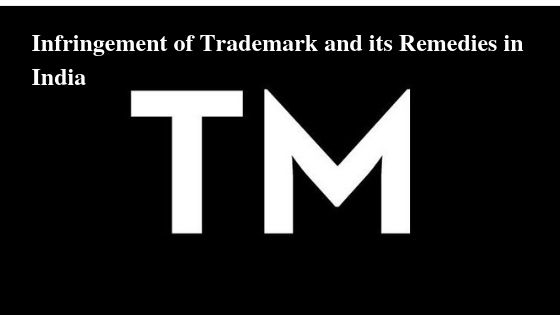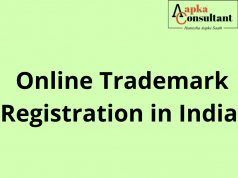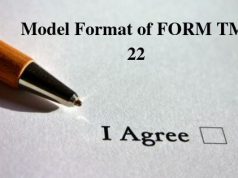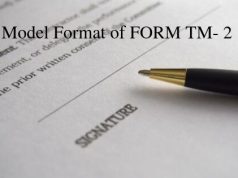What is Trademark?
TRADEMARK REGISTRATION protection is available for certain names, symbols, devices, or words that will be used in connection with a good or service. Technically, if a certain mark is associated with a service, it is called a “service mark,” but trademark is commonly used to refer to both marks associated with services and goods. The purpose behind trademarks is to allow companies and individuals to indicate the source of their goods or services and to distinguish them from others in the industry.
Trademark law in India is governed by the Trade Marks Act, 1999 & Trade Marks Rules, 2002 (and amendments thereof). The Trademark Act & Trademark Rules seeks to provide for the registration of Trademarks relating to goods and services in India. The advantage of having a TRADEMARK REGISTRATION is that the owner can give its Trademark a unique image thereby ensuring a brand name. Trademark registration helps in instant recognition for buyers thereby ensuring that brand loyalty is created. Under the Indian laws a letter, number, word, phrase, logo, graphic, shape, smell, sound or combination of these things is registerable.
Effect of TRADEMARK REGISTRATION
The valid registration of a Trade Mark under the Act gives to the registered proprietor the exclusive right to the use of the trade mark in relation to the goods or services in respect of which the trade mark has been registered. He becomes entitled to obtain relief for infringement of his trade mark in the manner provided in the Act. An action for infringement of Trademark can be initiated only oncetrademark registration is complete.
The Hon’ble Supreme Courtclearly distinguished a registered trade mark from an unregistered trade markand interpreted sections 77, 78 and 79 of the Trade and Merchandise Act, 1958 to lay down that the legislature is silent and has deliberately not used the word “registered” before the words trade mark, mark or trade description in the chapter dealing with offences, penalties and procedure and therefore the trademark registrationis not compulsory for initiation of criminal action. Hence, holder of an unregistered trade mark can also take recourse to criminal action. The above judgment of Hon’ble Supreme Court still holds good and applicable on offences, penalties and procedures described in chapter XII of the Trade Marks Act, 1999.
The definition of Infringement of a trademark is given in Indian Trademark Act of 1999, section 29 whereby, a registered trademark is said to be infringed by any person, who not being the registered proprietor of the Mark or being a person authorized by the owner for its use in the course of trademark which is identical with, or deceptively similar to the mark in relation to goods and services in respect of which the trademark is registered.
Following are such essentials constituting an infringement:
- Person infringing the trademark is not authorized to use the trade mark.
- The infringing trademark is either similar or identical or deceptively similar to the already registered trademark.
- The infringing trademark must be used in the course of regular trade in which the registered proprietor or user is already engaged.
- The use of infringing trademark must be printed or in case of usual representation of mark in advertisement, invoices or bills. Mere oral use of trademark is not infringement.
- Using either whole of the registered trademark or an adopted one by making a few addition and alteration.
Procedure under criminal law
Under Section 156 of the Code of Criminal Procedure, 1973 the police has the power to investigate cognizable cases. Sub section 3 Section 156 provides that in case of refusal by the police to lodge an FIR or initiate criminal action, the aggrieved can file a complaint before the Magistrate, procedure which are laid down in section 190 of the Code of Criminal Procedure, 1973. The offences under the Trade Marks Act, 1999 and the Copyright Act, 1957, by virtue of the First Schedule table II of the Code of Criminal Procedure, 1973, are classified as cognizable offences though the same is not provided for in the said Acts. Any offence which is punishable with imprisonment for 3 years is a cognizable, non-bailable offence and triable by the Magistrate of First Class”. Thus, an offence under the Trademark RegistrationAct, 1999 and the Copyright Act, 1957 can be investigated and inquired by the police by mere registration of an FIR without the adjudication by the Magistrate upon the issue.
Criminal remedies
Any person who uses a particular trademark without permission of the proprietor and makes that trademark deceptively similar shall be deemed to falsify a trade mark under section 102 of Trade Mark Act, 1999. Penalty for the same is given under Section 103 of the same act.
Penalty under Section 103:-Any person falsifies any trademark or falsely applies to goods or services any trade mark shall be punishable with imprisonment for a term which shall not be less than 6 months but which may extend to 3 years and with fine which shall not be less than Rs50,000 but which may extend to Rs2,00,000.
According to section 104 if any person who helped the accused by selling, providing or hiring services of the such good, possessing such goods for sale or any other possible way will be punished with imprisonment for a term which shall not be less than 6 months but which may extend to 6 years and with fine which shall not be less than Rs 50,000 but which may extend to Rs 2,00,000.
Civil Remedies for Infringement of a Trademark:
In the case of infringement, a suit can be filed under section 134 of Trade Mark Act, 1999 in district court. Jurisdiction for the same will be, where the head office of plaintiff is situated or where the cause of action has arisen. Section 20 of CPC does not apply for the purpose of suit under 134 of Trademark Act,1999.
If the court thinks fit it can allow any of the following order:
- An injunction restraining further use of the infringing mark under Order XXXIX Rules 1 & 2 of CPC i.e. temporary injunction or under Section 36-42 of specific relief act i.e. permanent injunction
- Damages or an account of profits.
- An order for delivery-up of infringing labels and marks for destruction or erasure.
These remedies can be taken in case of infringement as well as in the case of passing off of trademark.
As per the extant provisions of Limitation Act, 1963 the period of limitation for filing suit for infringement of trade mark is three years from the date of infringement. Where the infringement is continuing one, a new cause of action would arise every time an infringement occurs.
Onus to prove the infringement lies on?
It is well-settled position in law that the plaintiff must prove that the essential features of his registered mark have been copied. The onus to prove ‘deception’ is on the part of the plaintiff who alleges infringement.
Jurisdiction for instituting a suit for infringement:
Section 134 of the Trade Marks Act, 1999 provides the jurisdiction for filing an infringement suit. As per the provisions, a suit for infringement can be instituted before a District Court within the local limits of whose jurisdiction the person instituting the suit or proceeding voluntarily resides or carries on business or personally works for gain.
If you want to send the legal notice for Trademark Infringement, then kindly contact the professionals of AapkaConsultant.com or Click here.
OUR SERVICES
Company Registration I Trademark I Copyright I Patent I GST I MSME
ISO Certification I Website/App Policy I Legal Documentation
Annual Compliance I Connect Consultant
Visit: Aapka Consultant to get Online Services of CA CS & Lawyers












